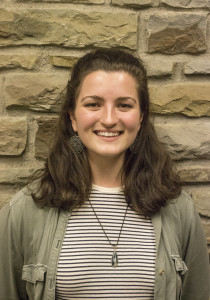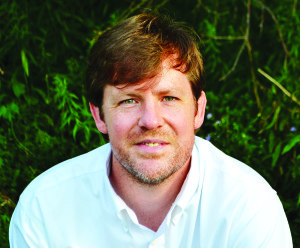By Hannah Lee
The equestrian world is an ever growing career that has gained more popularity each year. Though it’s primarily a female dominated field, it can be quite diverse, embracing both men and women and people of all shapes, sizes, ages, and ethnicities. That being said, that diversity does not end there. Within the realm of Houghton’s equestrian related activities such as competitions, ownership, and academics, there is a strong central faith guiding the program. The program is designed not only to help its students grow in their equestrian knowledge, but also connects them more to their faith as they go forward. I am honored to be a part of Houghton’s equestrian legacy and to have the opportunity to write about the program.
I have had personal experience with trusting God’s process in my time here at Houghton. Many equestrian students, if not all of them, will experience a setback that requires a level of trust that we can only find by leaning on God’s understanding. Trusting the plan God has in store is not always easy, but waiting and listening for His guidance yields the greatest outcome of success and peace. Last fall I had a riding accident that left me with a broken bone and nerve damage to my dominant arm. It’s not uncommon to meet equestrians who have had similar injuries, and most of them will tell you it does not change their view on the sport, but it teaches us how to adapt to new challenges. These challenges are like the valleys we walk through in faith. They test us, and it’s easy to want to give up. My encouragement is to not give up and trust God’s process. I was terrified when I got my injury diagnosed, but there was nothing I could do to change it. I was told it could be a year before I gained all function back in my hand, and even longer before I could ride again. I had to change my major, albeit not an extreme change, but it was and is a setback. I had no choice but to trust God and His plan for me. We equestrians experience setbacks all the time, and the outcome will most likely not be what we want if we do not have faith in God.
As equestrians, it is our passion to care for and learn from the creatures we work with. I think of it as the special calling God has for us. We are stewards of one of God’s greatest creations, the horse. We are able to forge a unique bond with the animals that allows us to better one another. The bond between horse and rider is so special. We can see the fruits of our efforts in our dressage tests, jumping courses, and even trail rides. It can sometimes look like riding horses is effortless, but it requires time, dedication, and love to get to those levels of trust between horse and rider. I like to think of it in how I engage with my relationship with God. I am not going to have a good personal relationship with God and my faith if I do not put any effort into it and do not cultivate the relationship. The same can be said for horses. I won’t have a good ride if I go into it with a negative attitude and then don’t try to get better. There won’t be any progress in my riding skills if I don’t try. Faith is important in our daily lives as Christians. We all know that, but how much more important is it when we are in hard times? Sometimes equestrians will go days and maybe even weeks without the good ride they were hoping for, and it can be really discouraging. As I said, we have to keep our faith; otherwise what are we in this for?
The community of equestrians here at Houghton is very different from what we see outside of campus. Unlike most commercial barns and competitive teams, Houghton’s program does not focus on competing and good scores at shows. We care about supporting each other and becoming equestrian professionals. We want to develop our skills as people and Christians. The development entails being good stewards to the horses and each other. In my experience, there are many barns that are very toxic, and they thrive on tearing one another down. Our equestrian program encourages us to lift each other up and give each other constructive criticism so we can improve.One verse that has been very encouraging for me has been Proverbs 21:31: “The horse is prepared against the day of battle: but safety is of the Lord”. We sometimes battle for each day, but we do not have to do it alone. We support each other at shows every semester, and the program is a tightly knit community that we all cherish.
Our horses, whether we own them or not, are teachers for us. They can teach us to be better riders, better people, and better Christians. It seems odd, but it is my belief that horses are some of the greatest faith teachers God has given us. The horses are what give equestrians the greatest challenges and the greatest tests of our faith, and that is what keeps me going. That faith—in the horses, ourselves, each other, and God—is what keeps us all going. Sometimes we just have to let Jesus take the reins. ★



